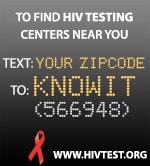
In a brief ceremony this morning at Harrisonburg Community Health Center (HCHC), Senator Emmett W. Hanger, Jr. received an award for his support of community health centers across Virginia. The award was presented to him by HCHC Staff and the Virginia Community Health Care Association, on behalf of community health centers across Virginia.
The Association, representing community health centers across the state, chose Senator Hanger because of his work in support of community health centers and other safety net providers. “Senator Hanger has consistently supported the work of community health centers and other safety net providers to meet the healthcare needs of Virginians, particularly in our rural areas like the Shenandoah Valley,” noted Christopher Nye, CEO of the HCHC.
Although most funding for community health centers comes from donations, federal grants to provide services, and payments for services from insurers and Medicaid, Virginia provides some support for community health centers and other safety net providers to meet critical needs, such as medication assistance and access to healthcare for the poor.
By providing these services, health care costs are reduced, with access to medications helping to better manage chronic conditions, such as asthma, diabetes, and high blood pressure. “Using these funds to help those most at risk actually helps communities reduce the cost of care and unnecessary use of emergency rooms in our communities”, said Rick Shinn, Director of Government Affairs for the Virginia Community Health Care Association.
The HCHC is located in Senator Hanger’s District and was founded by members of the community to meet the primary care needs children, adults, and families in need of a medical home. Over 100 Community Health Centers like the Harrisonburg Community Health Center can be found across Virginia where access to primary care is a challenge. Community health centers are established by communities to insure that access to healthcare services are available to everyone by accepting all forms of insurance and by offering different payment options for the uninsured. Currently, more than 300,000 Virginians rely on their local community health center for primary care services.
























